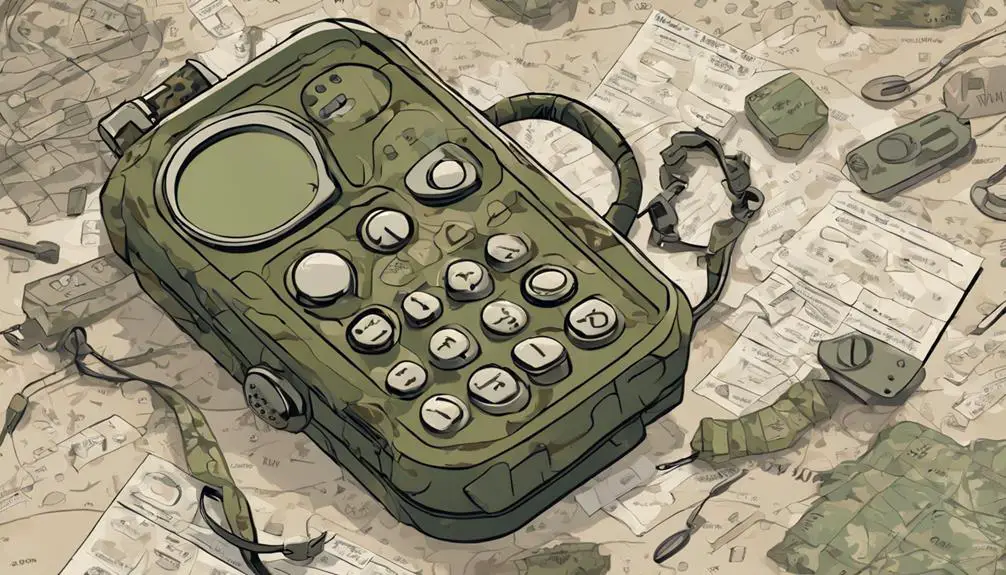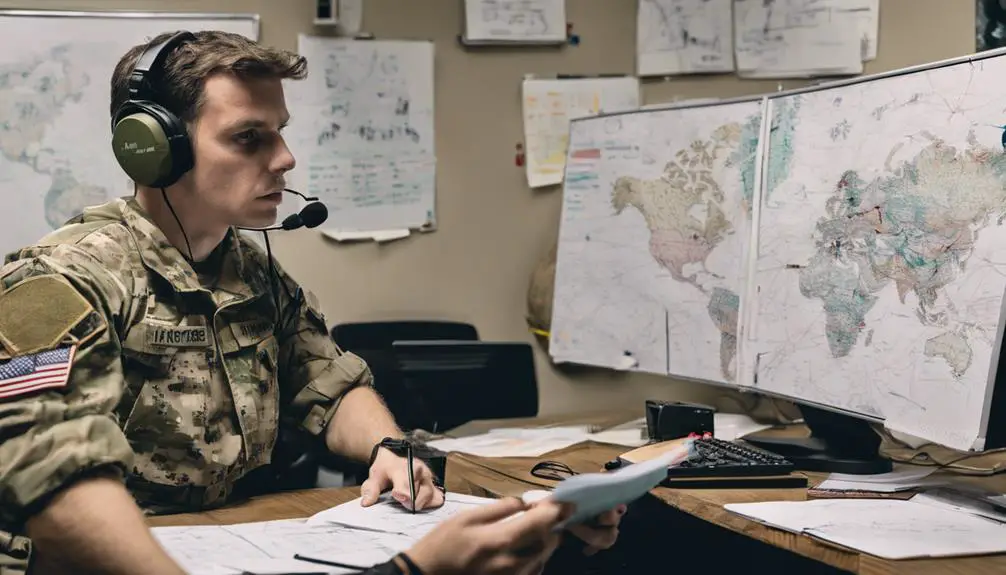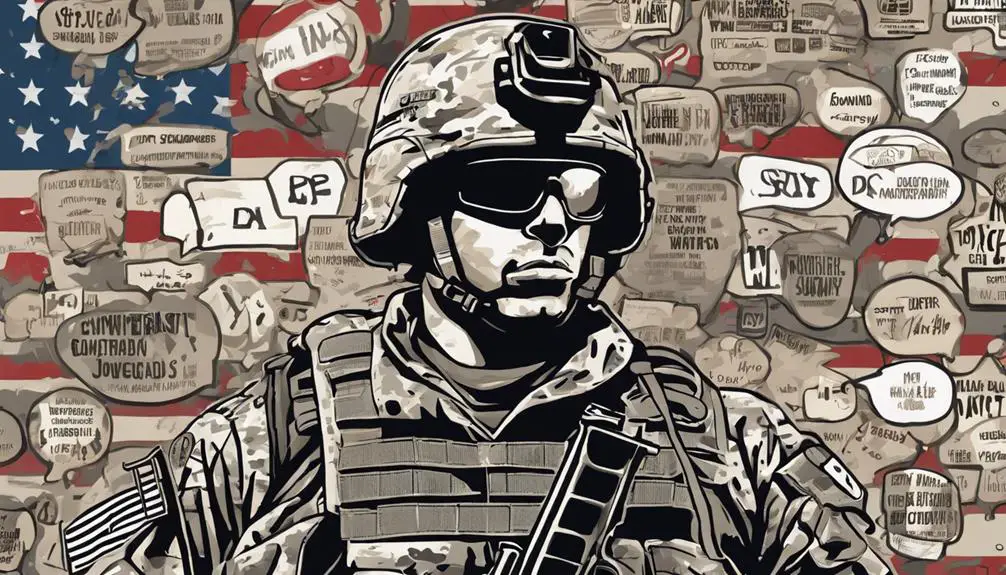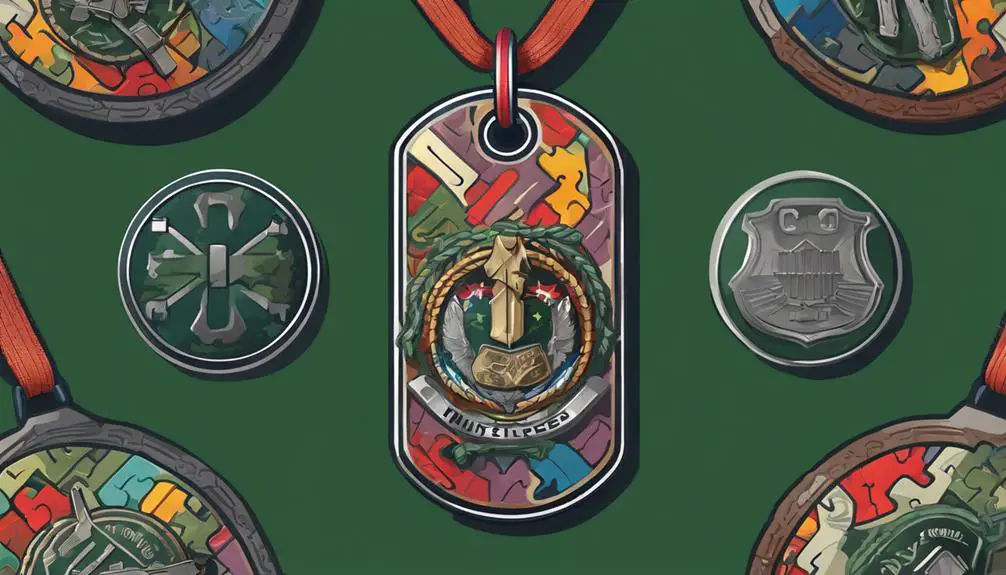As you explore military slang and acronyms, you'll discover a unique language that's evolved to convey complex info quickly and efficiently. From 'Hooah' (expressing enthusiasm) to 'CAS' (Close Air Support), each term and acronym has a specific meaning. With over 15,000 acronyms used in military communication, understanding them is essential for effective communication. You'll find that each branch has its own jargon, rooted in history and tradition. As you learn more about military slang and acronyms, you'll gain a deeper appreciation for the cultural context in which they're used – and uncover the nuances that make them so powerful.
Decoding Military Lingo Basics

To navigate the complex world of military communication, start by recognizing that military lingo is a unique language with its own rules, nuances, and abbreviations. You'll need to understand that military lingo has undergone significant evolution over the years, adapting to new technologies, tactics, and operational environments. This Lingo Evolution has led to the development of specialized terminology, acronyms, and abbreviations that can be overwhelming to outsiders.
As you explore the world of military communication, you'll encounter codebreakers, cryptanalysts, and intelligence experts who've played an important role in shaping military lingo. Codebreakers, in particular, have been instrumental in deciphering enemy codes and ciphers, greatly impacting the outcome of military operations. Their work hasn't only influenced military communication but also contributed to the development of modern cryptography.
To effectively communicate in this environment, it's crucial to recognize the importance of military lingo and its various components. By understanding the basics of military communication, you'll be better equipped to navigate the complex world of military slang and acronyms.
Common Slang and Expressions
You've likely encountered military slang and expressions in popular culture, from 'Hooah' to 'ROE' (Rules of Engagement), but understanding these colloquialisms is essential to grasping the nuances of military communication.
As you explore further into the world of military slang, you'll discover that certain phrases and words hold significant meaning within the community. For instance, 'Hooah' is a term used to express enthusiasm, agreement, or motivation, often shouted during training exercises or before a mission.
In combat culture, 'Warrior Wisdom' is a phrase that embodies the values of courage, discipline, and sacrifice. It's a mindset that drives soldiers to push beyond their limits and make tough decisions in high-pressure situations. Familiarizing yourself with these expressions will give you a better understanding of the military's unique language and traditions.
Acronyms in Military Communication

In military communication, over 15,000 acronyms are in use, making it important to decipher these abbreviations to understand operational plans, mission objectives, and tactical strategies.
You'll often come across acronyms that seem like a foreign language, but understanding their origins is vital. For instance, the acronym 'SITREP' originates from ' Situation Report,' which provides critical information on the battlefield. Similarly, 'CAS' stands for 'Close Air Support,' which involves airpower in close proximity to friendly forces.
Some acronyms are classified, and you'll need proper clearance to access their meanings. These classified abbreviations are important to national security and are only shared on a need-to-know basis.
As you navigate military communication, it's crucial to recognize that acronyms serve as a shorthand for complex concepts, allowing personnel to quickly convey critical information. By understanding the origins and meanings of these acronyms, you'll be better equipped to comprehend military communication and make informed decisions.
Branch-Specific Jargon and Terms
Across the different branches of the military, unique jargon and terms have evolved, reflecting each branch's distinct culture and operational focus. You'll find that each branch has developed its own language, often rooted in history, tradition, and shared experiences.
In the Navy, for instance, nicknames have become an integral part of their culture. You might hear terms like 'squid' for a sailor or 'bubblehead' for a submariner. These Navy nicknames often reflect a sense of camaraderie and shared identity among sailors.
Meanwhile, in the Marine Corps, myths and legends have become an essential part of their folklore. Marine myths often revolve around legendary figures, heroic deeds, and iconic battles. These stories are often told and retold, serving as a way to connect with the Corps' rich history and tradition.
As you explore the different branches, you'll discover that each has its own distinct language and cultural nuances. Understanding these branch-specific terms and jargon can help you better communicate with service members and gain a deeper appreciation for their unique cultures.
Mastering Military Slang in Context

Mastering military slang requires understanding its context, and that means recognizing how words and phrases are employed in different situations to convey nuanced meanings. You'll need to take into account the setting, the people involved, and the purpose of the communication.
For instance, a phrase like 'Hooah' might be used to express enthusiasm or agreement in a casual conversation, but it would be out of place in a formal briefing.
To truly master military slang, you need to immerse yourself in the cultural context in which it's used. This means seeking out real-world applications, such as listening to veterans share their stories or participating in military-style training exercises.
As you gain more experience, you'll start to pick up on the subtleties of military slang and learn how to use it effectively in different situations.
Frequently Asked Questions
Can Civilians Use Military Slang Without Being Disrespectful?
You might wonder if using certain phrases or words from a different cultural group is okay. The answer lies in understanding cultural appropriation.
When you adopt slang from a group you're not part of, it can be disrespectful, especially if you don't understand its origins or significance. Social acceptance depends on your intentions and awareness of the cultural context.
Be mindful of your actions and consider the potential impact on the original community.
Are There Slang Terms Specific to Military Ranks or Positions?
You're probably thinking you're about to start on a top-secret mission, but relax, we're just exploring military slang.
Now, about those Rank Nicknames – you'll find that some positions have their own special lingo. For instance, a Lieutenant Colonel might be called a 'Light Colonel,' while a Sergeant Major is often dubbed 'Sergeant Major of the Army' (SMA).
Position Jargon is just as prevalent, with terms like 'Grunt' for infantrymen and 'Devil Doc' for Navy corpsmen.
How Do Military Slang and Acronyms Evolve Over Time?
As you explore the evolution of slang and acronyms, you'll find that historical influences and technological advancements play a significant role.
Over time, language adapts to reflect cultural and societal changes. New terms emerge, while old ones fade away.
You'll notice how wartime experiences, cultural exchange, and technological innovations shape the way people communicate.
As you investigate further, you'll uncover the dynamic nature of language, constantly evolving to meet the needs of its users.
Are There Regional Differences in Military Slang Usage?
You're likely familiar with regional dialects in everyday language, but did you know that geographic variations also exist in military slang?
Take, for instance, the US Navy's East Coast vs. West Coast terminology. You'll find cultural influences at play, too.
For example, Hawaii-based units might adopt local phrases, while those stationed in the South might use colloquialisms specific to that region.
These differences in military slang usage can be attributed to the unique cultural and environmental factors of each region.
Can Military Slang Be Used in Formal Military Writing?
When writing for a formal tone, you'll want to avoid using slang in official documents.
In formal military writing, you should stick to the official language, avoiding colloquialisms and informal expressions. This guarantees clarity and professionalism, maintaining a level of respect and authority.
Save the slang for casual conversations with fellow soldiers, but in official communications, keep it formal and professional.
Conclusion
You've mastered the basics of military slang and acronyms, but you might be thinking, 'This is all well and good, but how will I ever keep it straight in the heat of the moment?'
Relax, with practice, these terms will become second nature. Imagine yourself in a high-pressure situation, effortlessly tossing around terms like 'SITREP' and 'FOB' like a pro.
You'll be the one translating for your civilian friends, not the other way around.







